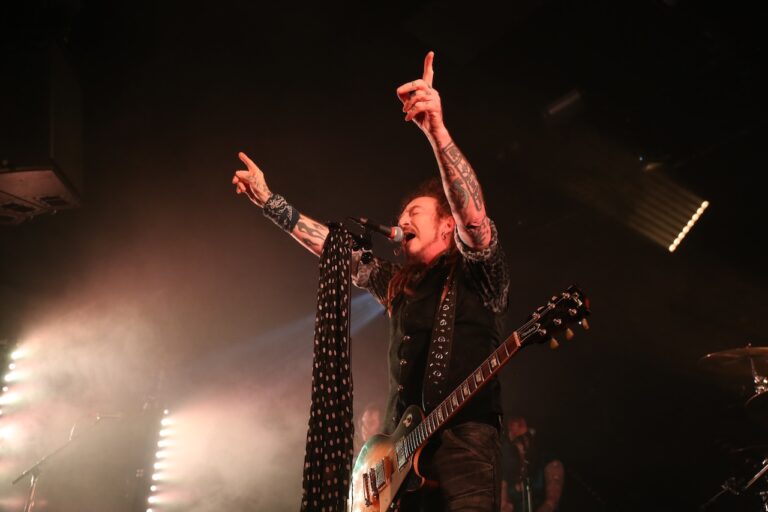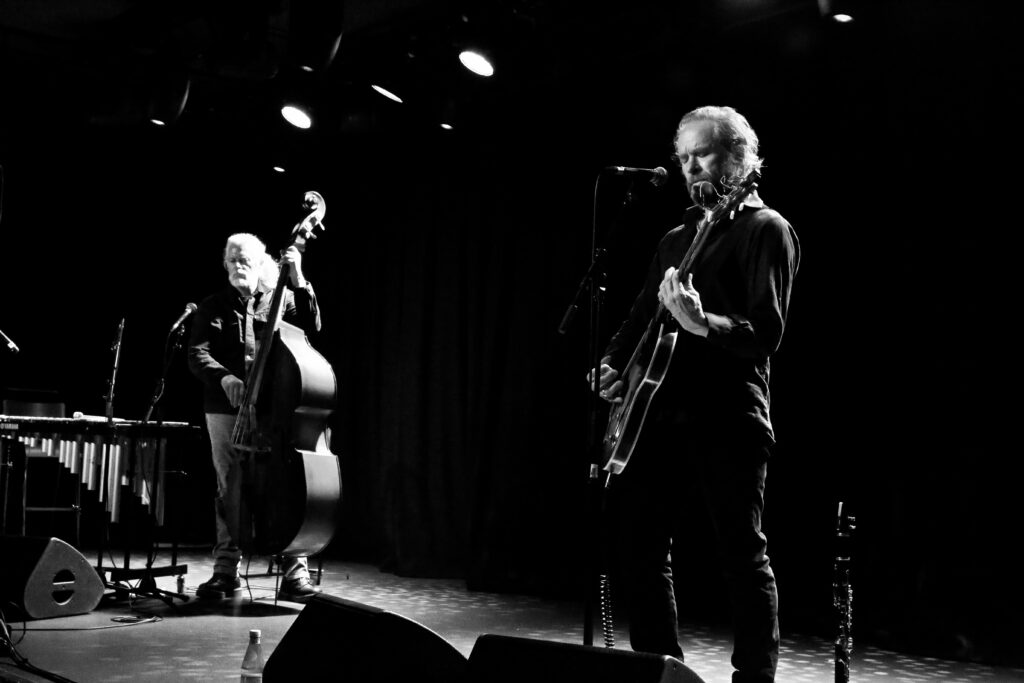
Having reviewed the recent book – The Greatest Band That Ever Wasn’t – it was with no small amount of excitement that I greeted the news that Barrett Martin (Screaming Trees, Mad Season, R.E.M.) was performing a very small, very intimate run of shows across the UK with Duke Garwood (a multi-instrumentalist who has played with everyone from The Orb and Mark Lanegan to Morcheeba). With the night split into two acts, the first half sees Barrett performing a one-man show, with storytelling, excerpts from his VEVO world music series, and live performance. The second half then sees the duo jamming on a selection of tracks, with Duke on guitar and Barrett on upright bass and vibraphone. It makes for a unique night, with Barrett’s natural enthusiasm proving to be the driving force.
Tonight, the duo are playing Nottingham’s Metronome – a venue I’ve not visited before, but which proves to be the perfect choice for this type of show. Run by Nottingham Trent University, it’s a beautiful space, with a decent bar, a 400-capacity auditorium (today decked out with seating), and what looks like a number of other creative spaces neatly tucked away from the public gaze. With friendly staff and a theatre vibe, it makes for a suitably relaxed atmosphere, and I hope to have the chance to return soon.
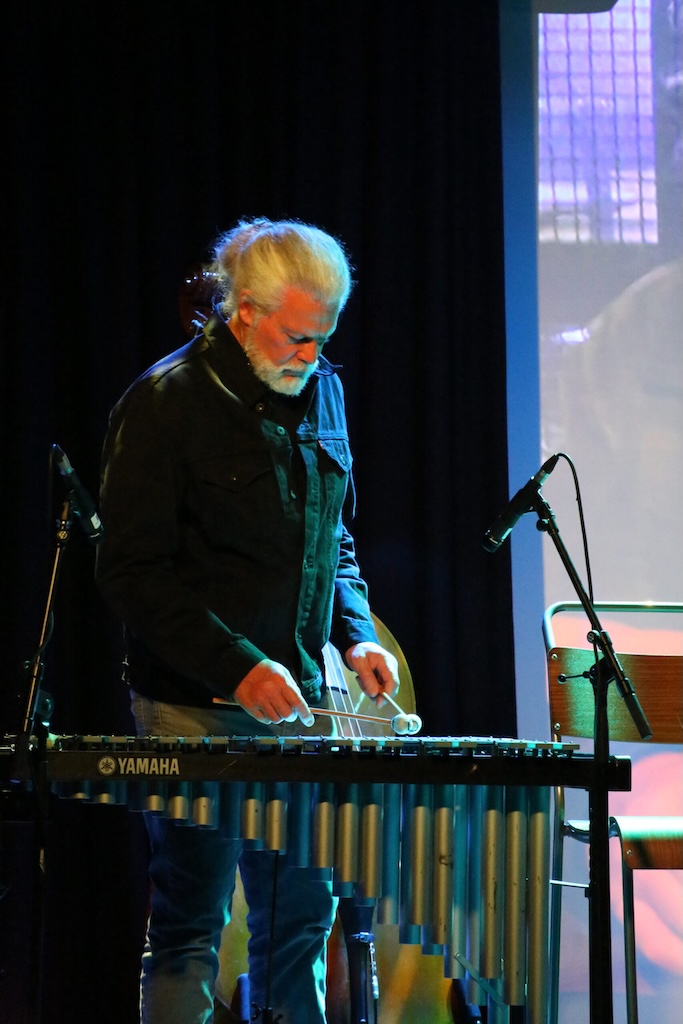
Part 1: Barrett & the Singing Earth
The Singing Earth is a new series on VEVO detailing the wonders of world music. Fronted by Barrett, it tracks his various musical adventures and tonight he treats us to six, short excerpts from the series, alongside a live commentary and performance spots. Barret is a captivating speaker. His absolute love of music in all its forms shines through, and it’s clear that his travels have influenced him in myriad ways.
Over the course of about 90 minutes, Barrett takes us on a journey that starts in the Amazon, some twenty years ago, with the sounds of the rain forest (“I bled for those recordings, the mosquitos were everywhere”) and the healing shaman. From there, we move to Brazil, where Barrett plays along to the soundtrack on the vibraphone. The whole thing is so subtle and understated, with Barrett so clearly in awe of the musicians that he met, that it’s utterly captivating and, within the auditorium, you could hear a pin drop as he speaks.
My favourite section of the night sees Barrett relate the story of how he met and worked with the late CeDell Davis, who had been one of the last living Delta blues musicians at the time of recording. Over the course of some fifteen years, Barrett worked with CeDell and, from a remarkable recording experience at The Rubber Glove (“an old slaughter house”), to one last ride, where a range of musicians from Seattle backed an ailing CeDell in the studio as he recovered from a stroke; it’s an emotional story honouring one of the great originators of the music we know today as rock ‘n’ roll.
Next up, we journey to Alaska to find that the fiddle took hold as the instrument of choice. With the valuable instrument once shuttled back and forth between communities for dance parties, Alaskan folk is the sound of pure joy and, as Barrett takes to the upright bass, we are treated to a lively tune from the album he both produced and played on.
Rather more unique is the Gamelan music from Bali, using which Barrett created a remarkable ambient track that mixes rich bass tones, the vibraphone (played live), and the Gamelan. It’s the most interesting piece of music aired in the first half, showcasing the diversity of Barrett’s tastes and skills, and it transports the listener to that far-flung Indonesian island. Barrett’s experience, meanwhile, of trying to buy a gamelan showcases the cultural gulf between the west, where an instrument is simply a commercial artefact, and Indonesia, where an instrument is a unique creative entity – built to serve an orchestra and far more than simply something to sell.
Finally, we head to the Peruvian Amazon, where Barrett uses an African Kalimba to back a healing song. With the piece performed by a shaman as birds drop seed pods to the forest floor around them, it’s one last magical moment from an evening packed with them and, throughout it all, Barrett’s enthusiasm and gentle humour serves as our guide to a range of places, people, and musical styles, most of us would never otherwise have had the opportunity to see and hear.
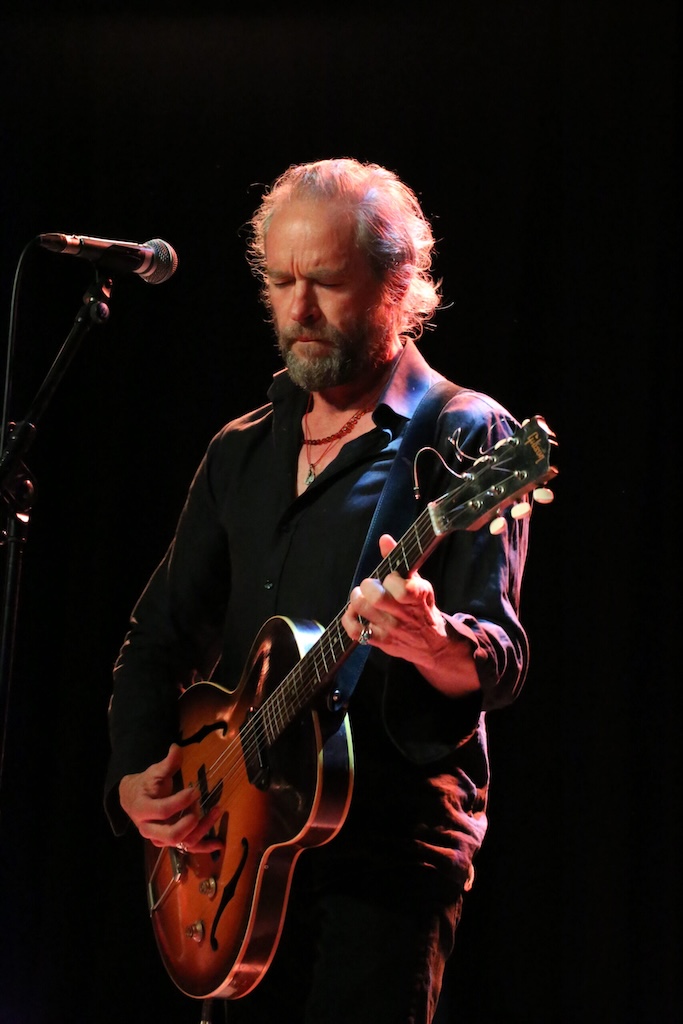
Live performance
With little fanfare, we move directly into the live portion of the evening, as Barrett invites Duke Garwood to the stage. A multi-instrumentalist, whose work with the late Mark Lanegan is the glue binding this evening’s show, Duke has a strangely commanding presence, offsetting the intensity of his guitar playing with a wry sense of humour deployed between songs.
With Mark and Barrett honouring their shared history, they treat us to an hour of music that is truly mesmerising. You wouldn’t think that two people could create so full a sound, and yet with a minimum of effects and no backing, they conjure ghosts out of the thin air and, for sixty magical minutes, Mark, Layne, and Van Connor are with us once again in this quiet auditorium.
The duo open with one of Duke’s songs, Cold Blooded, which sees Barrett on the shaker and upright bass. With Duke employing a mix of reverb and tremolo, his semi-hollow body guitar fills the air, and the resulting piece feels like a cross between Mad Season and The Doors. Next up, a take on Mark Lanegan’s Pentecostal sees Duke carving strange guitar figures, before digging into the dark blues that epitomised their work together. Bearing a remarkably similar voice, Duke brings the song to life, while the natural symbiosis that exists between Duke and Barrett gives the night a loose, jammed out feel.
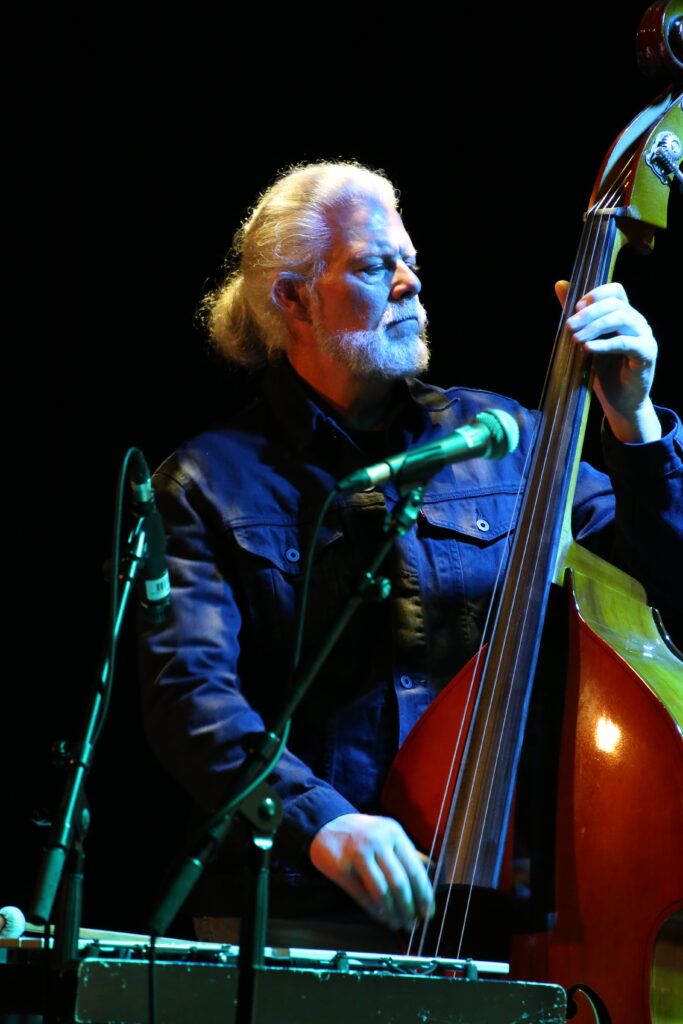
Better still is their take on Ghost Stories (from 2018’s With Animals), which has a beautiful post-rock vibe, recalling the earthen beauty of Gira’s Angels of Light project in this intimate setting. It’s a deeply affecting performance for band and audience both, the latter offering hushed applause and tentative whoops at the conclusion of each track. Occasionally, Duke triggers a burst of laughter (“don’t try this at home… don’t try this on stage, either”, he quips as he tunes his guitar), but the focus is always the music and so, over the course of the evening, we get to hear Driver (from Mark and Duke’s album, Black Pudding), as well as the beautiful Sleep and the stunning Burning Seas (thankfully retitled from Scented Wind), from Duke’s solo catalogue.
The night concludes with a pair of stone-cold classics. From Screaming Trees’ Sweet Oblivion, we get Winter Song, delivered with quiet intensity. And then, to close the night, the duo deliver a moment of sonic perfection in the form of Mad Season’s Long Gone Day. With Duke sensibly opting to reinterpret Layne’s unique delivery, and adding squalls of jazz-infused clarinet, Barrett takes to the upright bass one last time, and even adds a handful of vocals at the end, eliciting cheers from the crowd, and bringing an incredibly intimate and special show to a beautiful close.
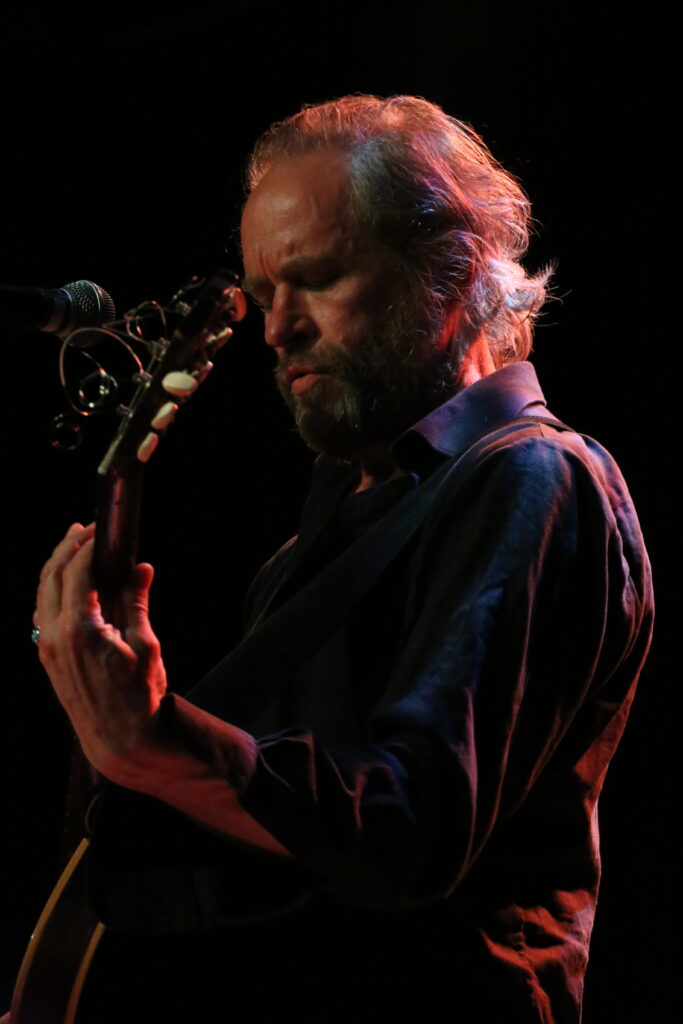
Conclusion
Tonight is a celebration. The first half celebrates the wonderful musical diversity that can be found around the world, and the very human spirit that sits at the heart of creativity. Barrett acknowledges that terrible things are happening around the world but, through music, he has found a unifying force, and his passion is both evident and infectious.
The second half celebrates the music of Duke Garwood and Barrett Martin, as well as the lives of Layne Staley, Mark Lanegan, and Van Connor. It is a warm and loving tribute delivered by two artists whose rare ability to anticipate one another leads to a wonderfully warm and generous evening of music. Like all good tributes, it is an evening that has its own character, the very act of reinterpreting these wonderful pieces giving them new life, and the audience leaves the auditorium quietly, lost in a reverie and, for some, their own memories of those enduring personalities.

